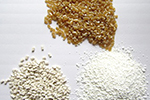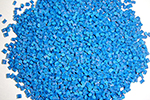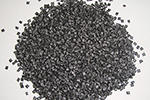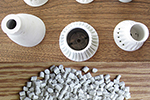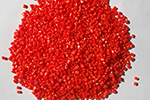News
News
Foucs On
Thank you for your attention
Follow Hones on Wechat
TEL: +86-757-22303518
Fax: +86-757-22222003
E-mail: info@fshones.com
QQ: 840352452
News
Improved engineering plastics will increase the use of automotive plastics
Add Date: 2018/1/10 View: 3476
Now that automotive plastics are becoming more and more familiar to everyone, what are automotive plastics? Why automotive plastics are so widely used? High-strength engineering plastics not only reduce parts processing, assembly and maintenance costs, but also make cars lighter and energy-saving And environmental protection. The data show that plastic and its composites are the most important light-weight materials for automobiles, which not only reduce the mass of parts by about 40%, but also reduce the cost of procurement by about 40%. As a result, the amount used in automobiles has rapidly risen in recent years .Engineering Plastics Opportunities and Challenges
In the 1990s, the average amount of plastic used in developed countries was 100kg / vehicle-130kg / vehicle, accounting for 7% -10% of the total vehicle curb weight. By 2011, the average amount of plastic used in automobiles in developed countries reached more than 300kg / Accounting for 20% of the quality of vehicle curb; it is estimated that by 2020, the average amount of plastic used in developed countries will reach 500kg / vehicle.
At present, the most common plastic varieties used in automotive plastics are polypropylene (PP), abs resin, polyvinyl chloride (PVC) and polyethylene (PE). Polyolefins make up the majority of automotive plastic parts and this trend will become more pronounced in the future.
Polypropylene (PP)
PP can be used as a variety of automotive components, now a typical passenger car, PP plastic parts accounted for more than 60. The main varieties of PP auto parts are: bumper, dashboard, door trim, air conditioner parts, battery case, cooling fan, steering wheel, of which the first five accounted for more than half of the whole car PP dosage.
Polyethylene (PE)
A series of modified PE alloy materials with good flexibility, weatherability and coating properties were obtained by graft modification and filling toughening of high density PE and low density PE resin. PE mainly uses blow molding method to produce fuel tank, ventilation pipe, deflector and various storage tanks.
In recent years the amount of PE on the car basically did not increase, it is noteworthy that the development trend of lightweight car fuel tank to promote plasticization. The European car officially uses plastic fuel tanks, the main material is high molecular weight high density polyethylene (HMWHDPE).
ABS resin
ABS resin is a ternary copolymer of acrylonitrile, butadiene and styrene. It can be used to make exterior or interior parts of automobiles such as instrument housings, refrigeration and heating systems, toolboxes, armrests, radiator grids Etc .; it can also be used to make dashboard skins, luggage, glove compartment covers, etc.
In recent years, the increase in the amount of ABS resin used in automobiles is not large. This is mainly due to the fierce competition between ABS resin and PP resin. In addition, ABS itself has defects such as poor weathering and flammability, The main components such as automotive dashboards, grilles and other applications are also limited.
Polyamide (PA)
Polyamide, commonly known as nylon, has high impact strength, abrasion and abrasion resistance, heat resistance, chemical resistance, lubricity and dyeability. As automotive structural parts, the amount of PA is constantly rising and can be used in harsh environments around the engine.
Among the above materials, the nylon material used in automobile structural parts has the most harsh environment. In the face of more and more strict automotive standards, engineers continuously improve the engineering plastics. The traditional nylon fiberglass reinforcement can no longer satisfy Updated demand. For POM there have also been more advanced solutions.
